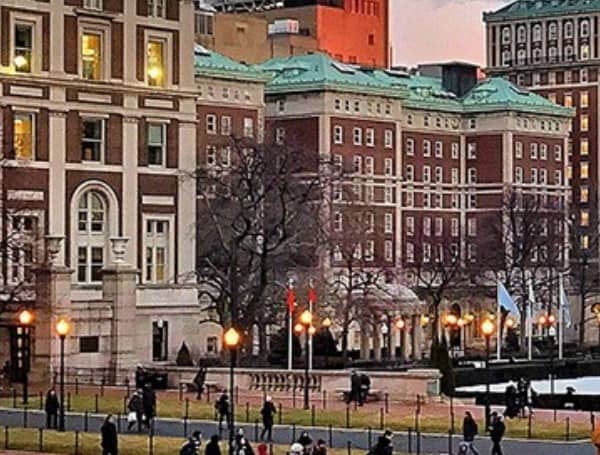In a not-so-surprising turn of events, Manhattan District Attorney Alvin Bragg has dropped charges against the majority of protesters arrested for trespassing at Columbia University’s campus in April.
This decision has sparked a heated debate around the implications of prosecutorial discretion and the balance between upholding the law and respecting the right to peaceful demonstration.
The protests, which centered on the U.S. response to the ongoing conflict in the Middle East, had initially drawn hundreds of participants.
Related: Columbia Alum Makes Massive Investment In Israeli University Amid Lingering Protests
However, towards the end of the demonstration, a group of 46 individuals were charged with criminal trespassing after occupying the university’s Hamilton Hall. Among those charged were 14 undergraduate students, 9 graduate students, and 2 employees of the institution, as well as 6 students from affiliated schools and 13 individuals with no direct affiliation to Columbia.
In a move that has surprised many, Bragg’s office has dismissed the cases against 31 of the 46 individuals charged, citing a lack of evidence. Prosecutors cited the difficulty in identifying protesters due to the fact that security cameras in Hamilton Hall were covered up, making it challenging to conclusively establish the identities of those involved.
Furthermore, the district attorney’s office has informed 14 of the remaining defendants that their cases will be dropped if they can avoid any further arrests over the next six months. This conditional dismissal suggests a willingness to exercise leniency, particularly for those without any prior criminal history.
While the charges have been largely dismissed, the consequences for the protesters affiliated with Columbia University are not yet fully clear. A university official has confirmed that there will be disciplinary actions taken, but the specific details of this process remain ongoing.
This raises questions about the interplay between the criminal justice system and the internal policies of academic institutions. As the custodians of their campuses, universities often have the authority to impose their own sanctions on students and employees who engage in disruptive or unlawful behavior, even if criminal charges are ultimately dropped.
Related: Columbia President Refuses Protesters’ Demands To Divest From Israel, Fails To Reach Agreement
The protests at Columbia University were not without their share of controversy. During the court proceedings, some of the defendants were observed wearing masks, sunglasses, and kaffiyehs, with one student even holding a protest sign under their seat, which was later confiscated by the police.
Furthermore, reports indicate that several of the defendants snickered at the mention of an Israeli flag being burned, suggesting a deeper ideological divide that may have fueled the tensions surrounding the protests.
Help support the Tampa Free Press by making any small donation by clicking here.
Android Users, Click To Download The Tampa Free Press App And Never Miss A Story. Follow Us On Facebook and Twitter. Sign up for our free newsletter.

